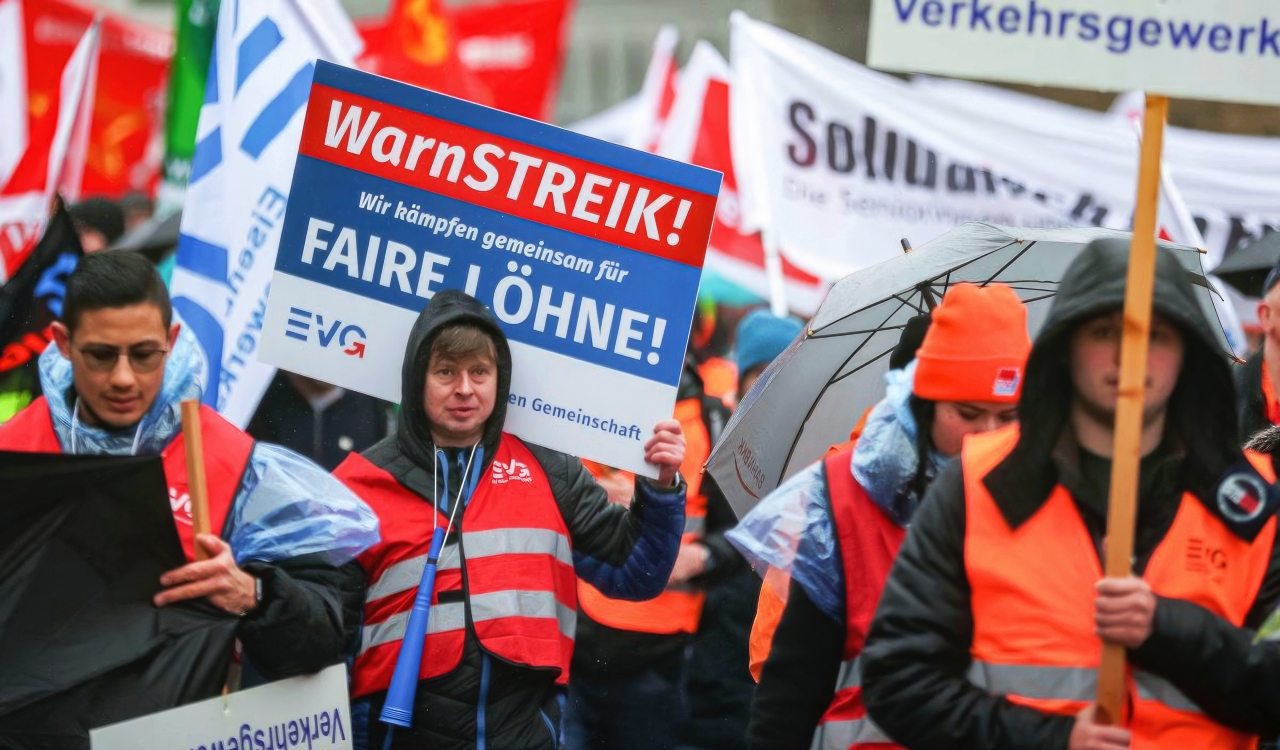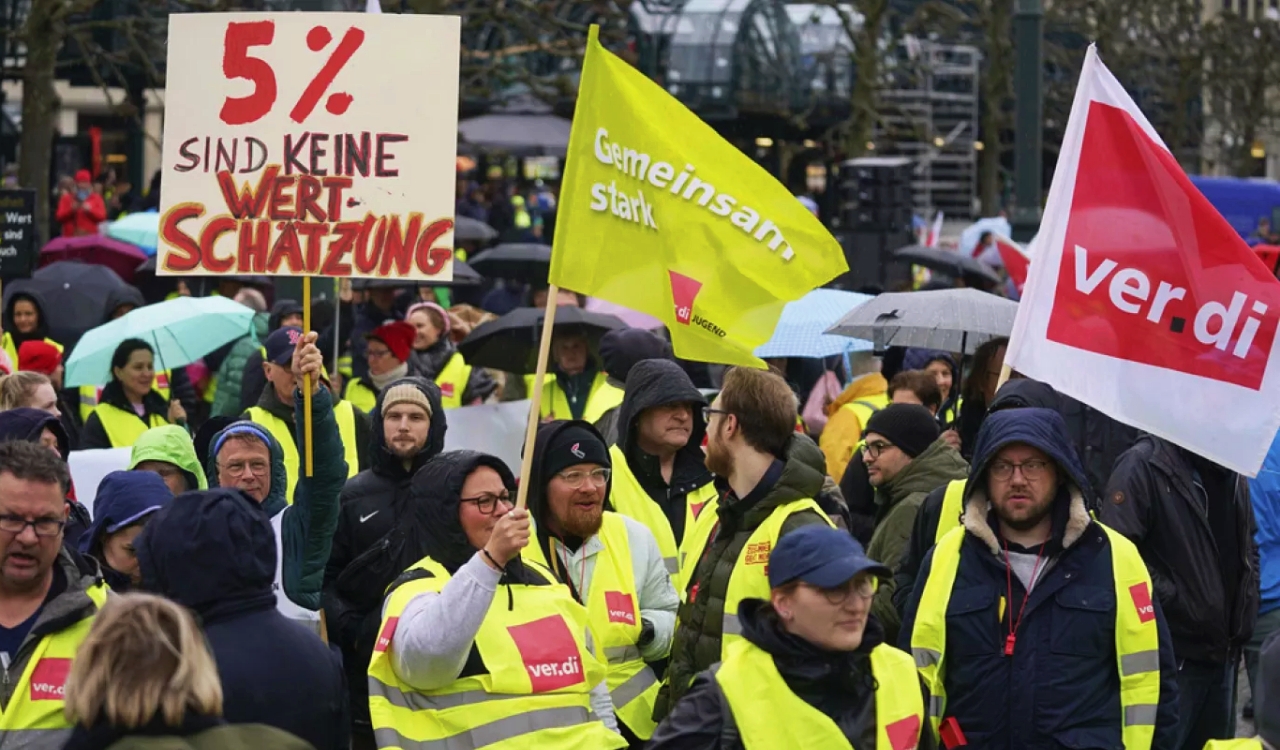Recent strikes in the travel industry across Germany have caused several disruptions in both the air and rail territories of the country. Both are of massive importance to Europe’s largest economy. Both Berlin & Hamburg airports were the latest transport hubs to be affected by recent strikes. Another walkout is planned for rail workers later this week.
All in all, Berlin-Brandenburg Airport had to cancel all 240 scheduled departures on Monday, April 24th.
This was due to the recent strike called by the Ver.di Union. Some arrival flights were also disrupted. What is so crazy too is that a lot more than just your average German pilot or flight attendant are part of these strikes. Security staff, also represented by the Ver.di Union has been staging one-day walkouts as well. This all stems from an ongoing dispute over pay.
In a statement, Berlin-Brandenburg Airport claimed:
“Due to the announced warning strike at the aviation security controls, no departures are possible today. Arriving flights may also be affected by cancellations and changes to the flight schedule due to the warning strike.”
Hamburg Airport was also hit with flight cancelations on Monday too. Aviation Handling Services (Hamburg), or AHS, staged its own 24-hour stoppage. They handle most of the check-in, baggage handling, and lost & found for several airlines. The AHS strike came on short notice too, in an attempt to potentially cause the most disruption. The AHS-represented workers were supposed to handle 84 of the 160 departures on Monday.
Yet this does not end with the aviation industry.
More Travel Issues In Germany And Why They Are Happening

[Image via Leonhard Simon/Getty Images]
Ver.di does not just operate as a union for the airline industry. They also represent several in the rail industry too, where they called for a separate strike involving 5,000 rail workers set for Wednesday, April 26th. Industrial action is planned in the Schleswig-Holstein, Lower Saxony, North Rhine-Westphalia, Bavaria, & Baden-Württemberg regions. Just like in the airline industry, the rail industry is looking for more money and the union is trying to get it for those they represent.
Ver.di claimed it called for the latest rail walkout after the first unsuccessful round of negotiations with the employers’ association, AGVDE. The union is trying to secure an increase in pay of roughly €550 per month over the next 12 months.
Train & Airline services in Germany were disrupted last week too, also by a series of similar strikes. That took place at the Duesseldorf, Hamburg, Cologne-Bonn, and Stuttgart Airports respectively.
Just like in other countries, Germany has seen disruptions from strike action as workers have pressed for better pay as well as better working conditions in an attempt to tackle the increased jump in the cost of living.
Essentially, Germany’s economy wants to charge more for goods and services, yet several industries in spite of charging more and seeing higher profits due to it, do not want to pay workers more. They want to keep it all for themselves and the workers are tired of it!
The German government recently agreed to a new wage deal for those in the public sector. There had been a separate dispute regarding this over the weekend but as of April 22nd, the new deal went into place. Now, Verdi feels the same needs to take place with rail and airline workers.
Will The Travel Issues Continue Or End Soon?

[Image via Marcus Brandt]
Usually, when it comes to unions trying to get better pay and treatment for those they represent, things can take a while. That is mostly because they want to get the most they possibly can for those in their union. Many involved were or are currently involved in the industry to this day, so this also directly impacts them.
However, unions are notoriously hated due to what they are designed to do. Owners cannot just take advantage of their workers when unions are in play.
A lot of this can cause tension, which seems to have been why Ralph Beisel, CEO of the ADV Airport Association, claimed that unions were taking their right to carry out warning trikes prior to arbitration to absurd lengths.
Ver.di Negotiator Volker Nuss responded to the recent strikes, claiming:
“The employees and their families have been hit hard by the recent price increases. It needs a significant increase to absorb the rising costs.”
To answer the header question, it is likely that these strikes continue to affect Europe’s largest economy for a while. The real thing these industries have to consider is, quite frankly, how long they going to hold out and allow these issues to occur.
These issues cannot possibly be useful or helpful to their bottom line. Verdi is simply doing what is best for those they represent. Yet one has to wonder if they will bend in order to just get things back on track.
Time will tell.